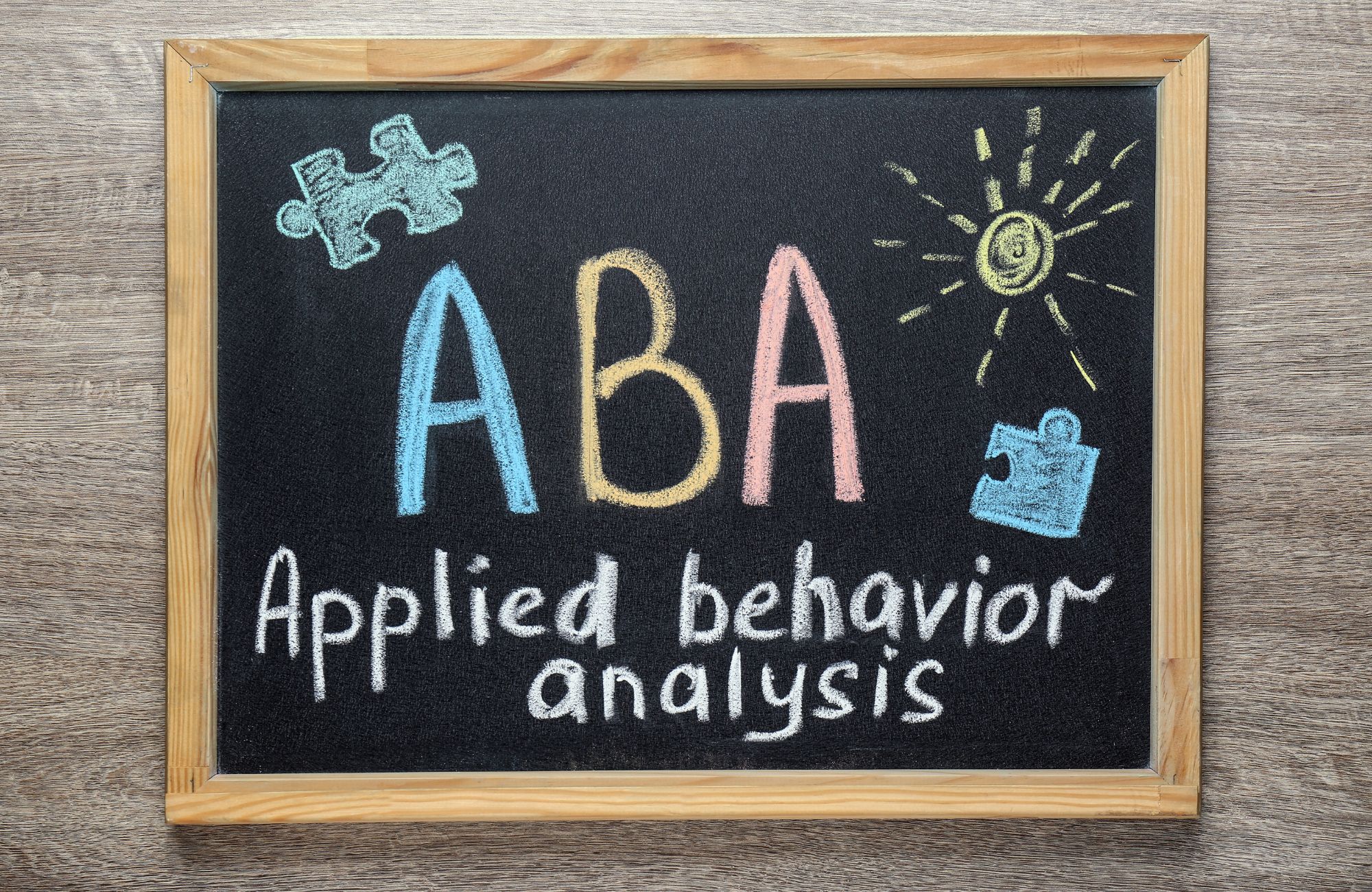Can You Become an ABA Therapist Without a Degree: Key Guide
Are you considering a career that makes a meaningful difference in the lives of individuals with autism spectrum disorder and developmental disabilities? Becoming an ABA therapist offers a rewarding path for those passionate about helping others achieve their full potential. Advanced education, such as a master’s degree, is often required for higher certification levels. Board Certified Behavior Analysts (BCBAs) play a crucial role in supervising therapy sessions and guiding the development of effective behavior intervention plans. Whether you’re wondering if you can become an ABA therapist without a degree or explore certification requirements through the Behavior Analyst Certification Board, this comprehensive guide will walk you through the essential steps, skills, and opportunities in this growing profession.
Understanding ABA Therapy Fundamentals
What is Applied Behavior Analysis (ABA) Therapy?
Applied behavior analysis therapy is a scientifically proven approach primarily focused on understanding how human behavior works in real situations and how learning takes place. The Behavior Analyst Certification Board (BACB) defines ABA as an evidence-based practice that applies behavioral learning principles to improve socially significant behaviors.
This therapy is particularly effective for individuals with autism spectrum disorder, helping them develop communication skills, reduce challenging behaviors, and increase adaptive functioning. While most commonly associated with autism treatment, applied behavior analysis therapy also benefits those with traumatic brain injury and other developmental disabilities, providing treatment strategies across the lifespan.
ABA therapy employs various behavioral interventions designed to address specific needs. Therapists use positive reinforcement to encourage desired behaviors, systematic teaching methods to build new skills, and functional behavior assessments to understand the purpose behind challenging behaviors. These evidence-based techniques help individuals learn essential life skills and improve their overall quality of life.
The Role of an ABA Therapist
Being an ABA therapist involves implementing behavior intervention plans designed to help clients reach their full potential. These behavior analysts work across diverse settings including schools, homes, clinics, and community centers. Daily responsibilities include analyzing behavioral patterns, implementing teaching strategies, collecting data, and collaborating with families and other professionals, such as occupational therapists.
During therapy sessions, ABA therapists apply consistent teaching methods tailored to each individual’s needs. They collect detailed data on client progress, monitor behavioral changes, and adjust intervention strategies accordingly. This methodical approach ensures that treatment remains effective and responsive to the client’s evolving needs.
What distinguishes effective ABA therapists is their ability to use positive reinforcement within evidence-based practices. Successful ABA therapists approach their work with empathy, recognizing the whole person beyond behaviors and respecting individual autonomy. Working with developmental challenges requires patience and exceptional communication skills to build strong therapeutic relationships. The most accomplished professionals in this field combine technical expertise with genuine compassion, creating an environment where clients feel valued and understood.
Understanding ABA Therapy and Autism Spectrum Disorder
Applied Behavior Analysis (ABA) therapy is a scientifically validated approach designed to assist individuals with Autism Spectrum Disorder (ASD) and other developmental disorders. ABA therapy employs evidence-based tools and practices to address a wide range of behavioral and developmental challenges. By focusing on observable behaviors and using positive reinforcement, ABA therapists help individuals improve social, learning, communication, and life-management skills.
ABA therapy is particularly effective for individuals with ASD, but its applications extend to those with ADHD, traumatic brain injury, dementia, and other developmental issues. The core principle of ABA therapy is to use positive reinforcement to encourage desired behaviors while reducing challenging ones. This approach not only helps individuals develop essential skills but also enhances their overall quality of life.
Research consistently demonstrates the effectiveness of ABA therapy in addressing the needs of individuals with behavioral and developmental disorders. ABA therapists play a crucial role in this process, using their expertise to design and implement behavior intervention plans tailored to each individual’s unique needs. While it is possible to enter the field without a formal degree, obtaining a bachelor’s degree in a relevant field such as psychology or special education provides essential knowledge about human behavior and developmental psychology, laying a strong foundation for a successful career in ABA therapy.
Educational Pathways to Becoming an ABA Therapist
Bachelor’s Degree Options
While you may have heard that you can become an ABA therapist without an advanced degree, entry-level positions like Registered Behavior Technician (RBT) require at minimum a high school diploma. However, a bachelor’s degree significantly enhances career prospects for aspiring ABA therapists.
Several undergraduate majors align well with a career in applied behavior analysis, including:
- Psychology provides an understanding of human behavior and developmental psychology
- Special education programs offer insights into teaching strategies for diverse learners
- Human services combines practical skills with theoretical knowledge
- Child development focuses on typical and atypical developmental patterns
- Sociology examines social factors that influence behavior and learning
During undergraduate studies, courses in behavioral and developmental disorders provide valuable practical knowledge. Classes in developmental psychology, learning theory, research methods, and behavioral assessment create a strong foundation for future behavior analysts. Many universities now offer specific concentrations in applied behavior analysis, giving students a head start in the field.
Beyond formal education, gaining practical experience through volunteering, internships, or entry-level work as a behavior technician provides invaluable hands-on learning. These experiences allow you to observe experienced ABA therapists, practice implementing behavioral interventions, and determine if this career path aligns with your professional goals.
Advanced Degrees and Specializations
Advancing in ABA typically requires a graduate degree. A master’s degree in behavior analysis, psychology, education, or a related field is standard for becoming a Board Certified Behavior Analyst (BCBA). When selecting a program, look for those offering coursework approved by the Association for Behavior Analysis International, ensuring it meets the requirements for BCBA certification.
Board Certified Behavior Analysts (BCBAs) play a crucial role in supervising therapy sessions and guiding the development of effective behavior intervention plans.
The field encourages ongoing professional development, with many behavior analysts pursuing specialized knowledge in areas like verbal behavior, feeding therapy, or working alongside occupational therapists in collaborative treatment models. Advanced training in specific treatment strategies or client populations allows therapists to develop expertise that enhances their effectiveness and career opportunities.
Professional growth in ABA extends beyond formal education to include mentorship, supervision experiences, and participation in research. Many graduate programs include practicum components where students can apply theoretical knowledge under supervision. These experiences bridge the gap between classroom learning and real-world practice, preparing students for the complexities of clinical work.
Certification Levels and Requirements
Registered Behavior Technician (RBT)
The RBT certification represents the entry point for many professionals entering the field of ABA. Certification requirements include a high school diploma, 40 hours of specialized training covering the RBT task list, a competency assessment, and passing the RBT exam administered by the Behavior Analyst Certification Board.
As a behavior technician, you’ll focus on implementing behavior intervention plans under the supervision of a BCBA or BCaBA. This role involves direct client interaction, data collection, and carrying out treatment protocols. While working as an RBT, you’ll gain valuable practical experience in behavior assessment, skill acquisition procedures, and behavior reduction strategies.
Many employers provide the required training and supervision for RBT certification, making this an accessible starting point for those interested in ABA therapy. This entry-level position offers firsthand experience while providing essential support services to individuals with autism spectrum disorder and other developmental disabilities.
Board Certified Assistant Behavior Analyst (BCaBA)
The BCaBA certification requires a bachelor’s degree from an accredited university, completion of approved coursework in behavior analysis (typically 180+ hours), and supervised fieldwork experience (1,000-1,500 hours depending on the supervision type). Candidates must also pass the BCaBA exam administered by the BACB.
This mid-level certification allows for greater responsibility while still requiring supervision from a BCBA for many professional activities. BCaBAs can conduct behavioral assessments, design intervention plans, and supervise RBTs under the oversight of a Board Certified Behavior Analyst. This certification provides a valuable stepping stone for professionals considering whether to pursue advanced certification.
Board Certified Behavior Analyst (BCBA)
The BCBA credential enables independent practice and represents the professional standard in the field. Requirements for this certification include:
- Master’s degree or higher in behavior analysis, education, psychology, or a related field
- Completion of a Verified Course Sequence in behavior analysis (approximately 315+ hours)
- Supervised experience (typically 1,500-2,000 hours depending on supervision type)
- Passing the BCBA certification exam
Once certified, BCBAs must complete continuing education units to maintain their credentials and stay current with ethical guidelines and best practices. This certification offers the greatest autonomy with opportunities for leadership positions, supervision roles, or establishing private practices.
BCBAs can independently conduct comprehensive behavioral assessments, develop intervention plans, supervise other practitioners, and provide consultation services across various settings. They often serve as clinical directors, program coordinators, or consultants, applying their expertise to complex cases and training other professionals in ABA techniques. Board Certified Behavior Analysts (BCBAs) play a crucial role in supervising therapy sessions and guiding the development of effective behavior intervention plans.
Essential Skills for Compassionate ABA Therapists
Technical Competencies
Effective ABA therapists understand behavioral principles to analyze data and behavior patterns accurately. They demonstrate proficiency in functional behavior assessment, skill acquisition procedures, and behavior reduction strategies. These skills enable therapists to develop appropriate intervention strategies tailored to individual needs.
Professional development in assessment techniques, data collection, and program development remains essential throughout one’s career. ABA therapists must stay current with research developments and best practices through continuing education, professional readings, and participation in workshops or conferences.
Data collection and analysis form the backbone of ABA therapy. Therapists must be skilled in objective observation, precise measurement of behaviors, and systematic recording methods. This data-driven approach enables therapists to make informed decisions about intervention effectiveness and necessary adjustments to treatment plans.
Interpersonal Skills
While technical expertise is necessary, becoming a successful ABA therapist requires exceptional interpersonal abilities. Experienced therapists build strong rapport with clients and view families as essential partners in therapy. Clear communication skills allow therapists to explain complex concepts in accessible language while collaborating with interdisciplinary teams. Cultural sensitivity helps create responsive interventions that respect diverse values. Emotional intelligence, particularly patience and empathy enables therapists to navigate challenging situations effectively, maintaining composure when progress is slow or setbacks occur.
Career Growth and Advancement
Entry-Level Opportunities
Entry-level positions provide valuable hands-on experience while requiring minimal formal education. These include behavior technician roles implementing programs under supervision. Many employers provide on-the-job training and support for certification, making these positions accessible for those beginning their career path in applied behavior analysis.
Aspiring ABA therapists can find opportunities in various settings, including:
- School-based programs supporting students with special needs
- Clinical centers specializing in autism treatment
- Home-based services delivering therapy in family environments
- Residential facilities providing round-the-clock support
- Community organizations offering social and life skills programs
These initial positions allow newcomers to observe experienced ABA therapists, receive mentorship, and develop practical skills. The hands-on experience gained in these roles provides invaluable insights into the day-to-day realities of clinical practice.
Advancement Pathways
As you gain practical skills and experience, professional growth opportunities expand. Many behavior analysts specialize in particular areas such as early intervention, school consultation, parent training, or adult services. Leadership roles become available as you demonstrate proficiency in applying behavioral principles effectively.
Professional organizations offer continuing education opportunities through conferences, workshops, and online training. Active participation in these organizations provides networking opportunities, access to resources, and avenues for professional development. For those choosing to pursue BCBA certification later in their careers, many employers offer tuition assistance programs that support ongoing professional development.
Advanced career options include:
- Clinical director overseeing ABA programs and supervising staff
- University professor teaching and conducting research in behavior analysis
- Consultant providing expertise to schools, organizations, or healthcare systems
- Program developer creating and implementing new treatment models
- Policy advocates working to improve access to ABA services
Each advancement opportunity requires dedication to professional growth, commitment to ethical practice, and continued development of clinical expertise. Many successful behavior analysts combine clinical work with teaching, supervision, or research, creating multifaceted careers that contribute to the field’s advancement.
Work Settings and Employment Opportunities for ABA Therapists
ABA therapists have the opportunity to work in a variety of settings, each offering unique experiences and challenges. Common work environments include schools, clinics, hospitals, and in-home programs, where therapists provide support to individuals with autism and other developmental disorders. Job titles in the field of ABA therapy include ABA therapist, behavior technician, behavior analyst assistant, and behavior therapist, each with specific roles and responsibilities.
In schools, ABA therapists support students with special needs, helping them develop academic and social skills. In clinical settings, therapists work with clients to address a range of behavioral issues, often collaborating with other professionals such as occupational therapists and speech pathologists. Hospitals may employ ABA therapists to assist patients with traumatic brain injuries or other medical conditions that impact behavior and development.
Home-based programs allow therapists to work directly with families, providing personalized support and training to caregivers. This setting is particularly beneficial for implementing consistent behavior intervention plans across different environments. Additionally, ABA therapists can work in private practices, community centers, and non-profit organizations, offering services to a diverse clientele.
Experienced ABA therapists can pursue leadership roles such as clinical directors or program managers, overseeing ABA programs, and supervising staff. They can also work as consultants, providing training and support to families, caregivers, and other professionals. The diverse work settings and employment opportunities in ABA therapy ensure that therapists can find a niche that aligns with their interests and career goals.
The Compassionate Approach to ABA
Guiding Principles
Effective ABA therapy balances scientific methodology with genuine compassion. This approach prioritizes understanding the whole person, not just the behaviors to address. When behavior analysts genuinely care about their client’s well-being, they develop more thoughtful and creative intervention strategies.
The field increasingly emphasizes collaborative models involving families and other professionals. By adhering to ethical guidelines while maintaining flexibility in implementation, therapists ensure interventions respect individual dignity while producing meaningful outcomes. This client-centered approach recognizes that behind every behavior is a person with unique experiences, preferences, and needs.
Contemporary ABA practice incorporates principles of positive behavior support, trauma-informed care, and person-centered planning. These approaches complement traditional behavioral techniques by considering contextual factors, personal values, and quality of life outcomes. The integration of these perspectives enhances ABA’s effectiveness and social validity.
Success Story
Consider a client who came to therapy with limited communication skills and frequent challenging behaviors. Traditional approaches had yielded minimal progress, leaving both the child and family frustrated. By taking time to understand the child’s interests before implementing formal programs, therapists discovered motivating reinforcers that became the foundation for intervention.
The therapy team designed a comprehensive program incorporating the child’s passion for music into skill-building activities. They collaborated closely with the family, teaching parents and siblings how to implement ABA techniques during daily routines. This collaborative approach ensured consistency across environments and empowered the family as active participants in the therapeutic process.
Within months, communication increased dramatically while challenging behaviors decreased substantially. Beyond these measurable outcomes, the most significant change was the child’s increased engagement and happiness during learning activities. This example illustrates how client-centered ABA produces meaningful outcomes that enhance overall quality of life.
Compensation and Financial Considerations
ABA therapy offers competitive salaries, even for entry-level professionals. The average salary for ABA therapists varies based on experience, certification level, and geographic location. Entry-level positions typically offer salaries ranging from $40,000 to $60,000 per year, while experienced professionals can earn between $60,000 and $80,000 annually. Senior-level positions, such as clinical directors or program managers, often command salaries of $80,000 to $100,000 per year or more.
In addition to competitive salaries, many employers offer benefits such as health insurance, paid time off, professional development funding, and tuition assistance. These benefits enhance the overall compensation package and support the ongoing professional growth of ABA therapists. Opportunities for additional income also exist, such as working as a consultant or providing private therapy sessions.
Challenges and Rewards of ABA Therapy
Like any profession, ABA therapy comes with its challenges and rewards. The field requires patience, dedication, and the ability to handle challenging behaviors effectively. ABA therapists often work with individuals who exhibit complex and sometimes difficult behaviors, necessitating a high level of resilience and adaptability.
However, the impact of ABA therapy on individuals with autism and developmental disorders makes it an incredibly fulfilling career. Helping clients achieve milestones, develop essential skills, and improve their quality of life is one of the most rewarding aspects of the job. ABA therapists often witness significant progress in their clients, which provides a profound sense of accomplishment and purpose.
In addition to the satisfaction of helping others, ABA therapists experience personal growth and development as they work with clients and families. The profession fosters a sense of community and camaraderie among colleagues and peers, creating a supportive work environment. ABA therapists can also pursue leadership roles, contribute to the development of the field, and engage in ongoing professional development.
Conclusion: Can You Become an ABA Therapist Without a Degree
Becoming an ABA therapist offers a fulfilling career path for those passionate about making a meaningful difference in the lives of individuals with autism and developmental disabilities. While you may have wondered if you can become an ABA therapist without a degree, we’ve explored how entry-level positions provide accessible starting points while advanced certification offers opportunities for greater responsibility. The journey combines academic knowledge, technical skills, and the essential human qualities of compassion and empathy that create therapeutic relationships that truly transform lives. It’s important to recognize that becoming an ABA therapist requires dedication and a genuine interest in understanding human behavior in all its complexity.
If you’re considering a career in ABA therapy, we encourage you to reflect on both the professional requirements and personal qualities needed for success in this field. For families navigating challenging behaviors with a child, Affinity ABC is a team of experienced behavior analysts who can help design interventions that respect your child’s individual needs while effectively addressing behavioral concerns. Contact us today to learn more about our compassionate approach to ABA therapy or to explore career opportunities with our team.
FAQs: Can You Become an ABA Therapist Without a Degree
What are the 7 requirements of ABA?
ABA therapy must be applied (addressing socially significant behaviors), behavioral (focusing on observable actions), analytic (showing clear intervention effects), technological (with clear procedures), conceptually systematic (based on established principles), effective (producing meaningful improvements), and generalizable (skills transferring across environments).
What is the difference between a behavioral therapist and an ABA therapist?
A behavioral therapist uses various techniques for issues like anxiety or depression across multiple disciplines. An ABA therapist specifically practices applied behavior analysis with BACB certification, focusing on autism and developmental disabilities using learning theory and operant conditioning methodology.
Can you get ABA therapy without an autism diagnosis?
Individuals can receive ABA therapy for conditions beyond autism including ADHD, traumatic brain injuries, and developmental delays. However, insurance typically requires a formal diagnosis, with autism being the most commonly approved condition for coverage.
Can I do ABA therapy myself?
Parents can implement basic ABA principles at home after learning through training programs and workshops. However, comprehensive ABA programs require professional assessment, development, and supervision by qualified BCBAs to ensure proper implementation and effectiveness.









